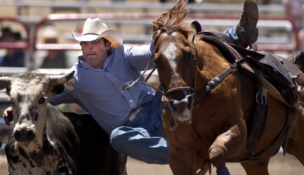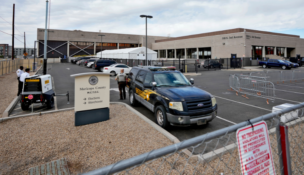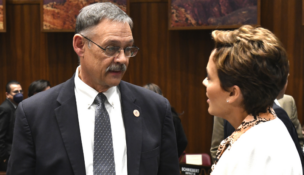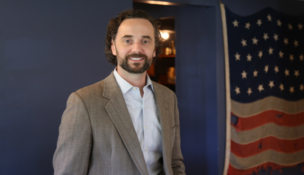Appeals court to hear arguments over no-bail law
Howard Fischer, Capitol Media Services//January 3, 2014//[read_meter]
Appeals court to hear arguments over no-bail law
Howard Fischer, Capitol Media Services//January 3, 2014//[read_meter]
 A federal appeals court agreed Thursday to hear new arguments about whether Arizona voters can legally make bail off limits to some people charged with crimes who are not in this country legally.
A federal appeals court agreed Thursday to hear new arguments about whether Arizona voters can legally make bail off limits to some people charged with crimes who are not in this country legally.
In a brief order, Alex Kozinski, chief judge of the 9th U.S. Circuit Court of Appeals said enough of his colleagues want to review last year’s divided ruling by a three-judge panel of the court to uphold the 2006 constitutional provision. A hearing before an 11-judge panel was set for March.
Thursday’s order does not mean the ballot measure is illegal. But it does effectively void the earlier appellate ruling, giving the full court a chance to reach an entirely different conclusion.
The order came over the objections of Maricopa County. Attorney Tim Casey, retained by the county to represent its interests, had argued to the judges that the law is constitutional, at least in part because it “serves a compelling interest” — ensuring that defendants charged with felonies remain in this country until their trial.
But Cecilia Wang, an attorney with the American Civil Liberties Union, said the real purpose behind the law is to punish people who are in this country illegally. More to the point, she said there is no legal reason to impose a blanket prohibition on bail.
Under the terms of Proposition 100, bail is unavailable to those charged with “serious felony offenses” if they are in this country illegally and if “the proof is evident or the presumption great” that the person is guilty of the offense charged.
It was crafted by former state Senate President Russell Pearce — at the time a state representative — who argued that anyone who has crossed the border illegally probably has few ties to this country. That, he said, makes them at greater risk of fleeing before trial.
Voters approved the constitutional amendment on a 3-1 margin.
A trial judge upheld the measure, as did that three-judge panel of the 9th Circuit in a 2-1 decision. But Wang said those rulings run contrary to constitutional requirements which essentially say that the sole purpose of bail is to ensure that those charged with certain crimes show up in court.
“It does away with individualized determinations about people’s flight risk, terms the presumption of innocence on its head, in essence, and holds people in jail even though they might be found not to pose a flight risk by a court,” she said.
Wang said only when a judge determines that no amount of bail would prevent someone from fleeing can that person be held until trial. And there are reasons for some across-the-board prohibitions on bail for those accused of capital offenses and those who previously have jumped bail.
She said, though, there is no reason to presume that someone who has been in the country for years, has a family here and is working will flee just because he or she is charged with a minor felony, one for which the penalty might be little more than probation.
As proof, she said there were people who were awaiting trial at the time Proposition 100 was approved who had been out on bail, were showing up for court hearings as required — and then were taken into custody solely because of the new requirement.
“And that’s just a blatant due-process violation,” Wang said.
She said that just goes to show that the real intent of Proposition 100 — passed four years before Arizona’s comprehensive SB 1070 — was to find ways to punish those who were in this country illegally. And that, Wang argued, makes the measure unconstitutional.
But Casey, in his own legal filings, pointed out the three-judge panel rejected that contention.
In the majority ruling, Judge Richard Tallman said while it is clear that lawmakers who put the issue on the ballot were concerned about illegal immigration, “a fair reading of the record does not support (challengers’) argument that Proposition 100’s primary purpose is the punish and deter immigration offenses.”
Casey also said that the U.S. Supreme Court has concluded that the mere fact someone is detained does not necessarily lead to the conclusion the government is imposing punishment. And he said there are sufficient protections built in, including the right to a prompt hearing on bail and the fact that defendants are entitled to have their cases tried within 150 days.
Wang, however, has cited other evidence, including some comments made by Pearce at the time. She said Pearce said he wanted to “end this (federal) system of catch and release” and that the measure was one of several to “make sure there are consequences and punishments” attached to being an illegal immigrant.”

















